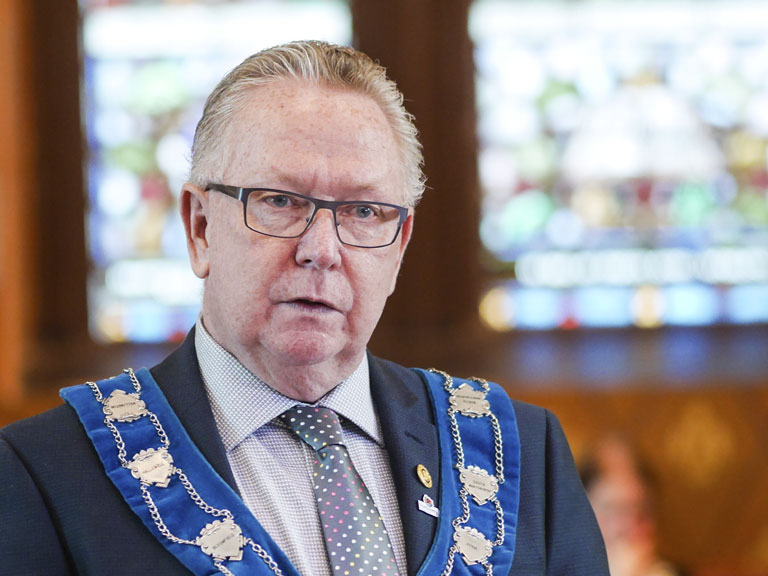County News
Measuring the impact

Education ministry sending envoy to Picton and nine other communities to find out what school closures mean to rural economies and lives
It is the crack that those who have been fighting to keep their schools had been looking for. It may not amount to anything—but at this point, desperate parents and communities are finding a glimmer of hope in the announcement on Friday that the Education Minister is dispatching a committee of MPPs to 10 communities across rural and remote Ontario. Their job is to listen and ask questions about the impact that school closures are likely to have on the economic and social viability of communities like Prince Edward County.
The committee will make a stop in Picton on May 12.
Last fall, the Hastings and Prince Edward District School Board (HPEDSB) announced it was recommending the closing of four schools—Sophiasburgh, Kente, Pinecrest and Queen Elizabeth in Picton would close at the end of June, pending the outcome of an Accommodation Review Committee (ARC). It also recommended building a new school in Wellington to be open in 2020—pending approval for funding from the province.
The ARC process has unfolded with withering complaints from parents, community leaders and the municipality. In a scathing presentation to the ARC meeting last week, Mayor Quaiff said the review process was moving too quickly—giving the impression its decision was already pre-ordained.
“Based on current timelines for the ARC process in Prince Edward County, we will never benefit from any solution that could be developed through this upcoming engagement,” said Quaiff. “If the Province is truly committed to supporting education in rural and remote communities, it must halt the process of consolidation happening in many rural communities across Ontario until this engagement has been completed and potential solutions are available that meet the needs of the community, the local economy and, most importantly, Prince Edward County students.”
Quaiff is bewildered as to why the municipality and elected council have been cut out of the decision- making process—despite promises to the contrary. He points to the board’s guiding principles, which describe its commitment to “explore opportunities for community partnerships aligned with the 2015-2020 Strategic Plan priorities”
“We are down to a final public meeting … before a final report is drafted and submitted to the trustees for decision on June 19, 2017,” wrote Quaiff in his letter to the Education minister. “To date, the municipality is unaware and has no evidence that the board has followed through with this commitment. At what point in the process does the board plan to work with the community or the municipality to explore opportunities for partnership?”
Mayor Quaiff is disappointed to with the school board’s response to announcement of the committee to research the impact of school closures on rural communities. Earlier this month, HPEDSB officials wrote to the minister warning that the planned May 12 meeting would be interpreted in the community as a potential change in direction.
The board worried that this process would cause residents to “question the validity of the current accommodation review process”. The Board asked for reassurance from the Province that it does not “intend to undo the responsibility of Trustees to make local decisions based on programming to support student achievement and well-being, effective stewardship of board resources, and including consideration of community input through the consolidation process.”
Mayor Quaiff called this reaction disappointing.
“We are concerned that the proposal offered by the board does not take into consideration the well-being of students in the short term or through the transition phases of consolidation,” said Quaiff. “At this stage we are very concerned that students moving to a new consolidated K – 12 facilities at PECI in a very short 10-week period of time will not be entering a safe environment that promotes student achievement, free of distractions and ready to accommodate elementary school age learners.”
The committee is comprised of three MPPs, Grant Crack, Parliamentary Assistant to the Minister of Agriculture, Food and Rural Affairs; Granville Anderson, Parliamentary Assistant to the Minister of Education and Lou Rinaldi, Parliamentary Assistant to the Minister of Municipal Affairs.
The plan is to meet with the school board and the municipality during the day. It will hold community town halls in the evening.
Their task is to seek input on strengthening rural education in the province.
While about 15 per cent of Ontario’s students attend rural public schools, enrollment is declining. School board funding is driven largely by enrollment, so boards see consolidation—fewer schools—as the way to put more money into resources, rather than older, under-utilized buildings.
But the Ontario government can see this policy is hollowing out communities in rural Ontario—and is already facing an uphill climb in the next provincial election. So it is sending out these three MPPs to assess the damage and report back to the education minister, Mitzie Hunter.
Mayor Quaiff says the County and its elected officials can play a useful role in identifying ways to better utilize these buildings, but so far, have been barred from participation.
Perhaps that will change on May 12.

Comments (0)